


If you ever find yourself craving a city that feels like a warm hug wrapped in centuries of culture,Chengdu is where you want to be. The moment you step into its bustling streets,there’s this laid-back rhythm that instantly puts you at ease—like the city itself is inviting you to slow down and savor life. You’ll hear the chatter of locals mingling over steaming bowls of spicy hotpot,the clatter of mahjong tiles in teahouses,and the occasional panda’s playful call from the nearby reserves. The air carries a mix of fragrant Sichuan peppercorns and freshly brewed jasmine tea,teasing your senses and hinting at the culinary adventure ahead. Chengdu’s charm lies in its seamless blend of old and new. Ancient temples and narrow alleys sit comfortably alongside modern cafes and vibrant street art. The city pulses with creativity and tradition,where you can watch elderly folks practice tai chi in the morning mist or catch a lively Sichuan opera performance complete with face-changing magic. It’s a place where history isn’t just preserved—it’s lived and breathed every day. And oh,the food! If you love bold flavors,Chengdu will steal your heart. From the numbing spice of mala hotpot to the delicate sweetness of freshly steamed dumplings,every bite tells a story. But beyond the food and sights,it’s the warmth of the people—their genuine smiles and easy hospitality—that makes Chengdu unforgettable. Trust me,once you’ve wandered its streets and tasted its soul,you’ll be dreaming of coming back.
The information on this page is currently being reviewed by Tripkliq and should be used as a guide only
Eng word: Hello
Eng pronunciation: nǐ hǎo
Local language: 你好
Eng word: Goodbye
Eng pronunciation: zài jiàn
Local language: 再见
Eng word: Thank you
Eng pronunciation: xiè xiè
Local language: 谢谢
Eng word: How much
Eng pronunciation: duō shǎo qián
Local language: 多少钱
Eng word: Toilet
Eng pronunciation: cè suǒ
Local language: 厕所
Eng word: Help me
Eng pronunciation: bāng bāng wǒ
Local language: 帮帮我
Eng word: Yes
Eng pronunciation: shì
Local language: 是
Eng word: No
Eng pronunciation: bù shì
Local language: 不是
Eng word: Excuse me
Eng pronunciation: duì bù qǐ
Local language: 对不起
Chengdu boasts a rich heritage as a key site of the ancient Shu civilization, with archaeological discoveries such as the Jinsha site and Sanxingdui Museum showcasing the city's history dating back over 4,000 years.
Built over 2,200 years ago during the Warring States period, the Dujiangyan Irrigation System is a marvel of ancient Chinese engineering. This UNESCO World Heritage site still functions, contributing significantly to the region's agriculture.
Chengdu is recognized as the birthplace of the world's first paper currency, Jiaozi, during the Northern Song Dynasty (960-1127). This innovation marked a significant milestone in the history of global finance.
The city is famous for its profound tea culture, with teahouses being a central part of life in Chengdu for centuries. It continues to be a place where people socialize and enjoy traditional Sichuan tea.
Chengdu is renowned for its spicy and flavorful Sichuan cuisine, one of China's eight major cuisines. It was designated a City of Gastronomy by UNESCO in 2010, celebrating its culinary arts and rich dining culture.
The Chengdu Research Base of Giant Panda Breeding is a leading facility dedicated to the research and conservation of giant pandas. Established in 1987, it has played a crucial role in increasing the panda population through breeding programs.
Dedicated to Zhuge Liang, the Wuhou Shrine is a museum and temple complex that pays homage to the notable strategies and contributions of this Three Kingdoms period figure. The shrine is also a symbol of wisdom and loyalty in Chinese culture.
Chengdu has a long history as a center for Shu brocade and embroidery, renowned for its intricate designs and vibrant colors. This craft has been passed down for generations, dating back to the Han Dynasty.
Qingyang Palace, one of the most famous Taoist temples in China, dates back to the Tang Dynasty. It is considered a spiritual center in Chengdu, attracting visitors interested in Daoism and Chinese mysticism.
In Chengdu, the most common Power Adaptor is Type A, Type C, Type I.






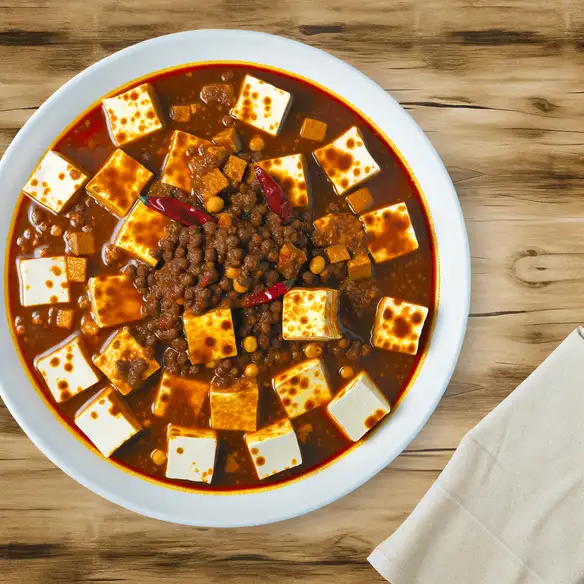
A spicy and numbing dish made with tofu, minced meat (usually pork), and a rich sauce of doubanjiang (fermented broad bean paste) and Sichuan peppercorns.
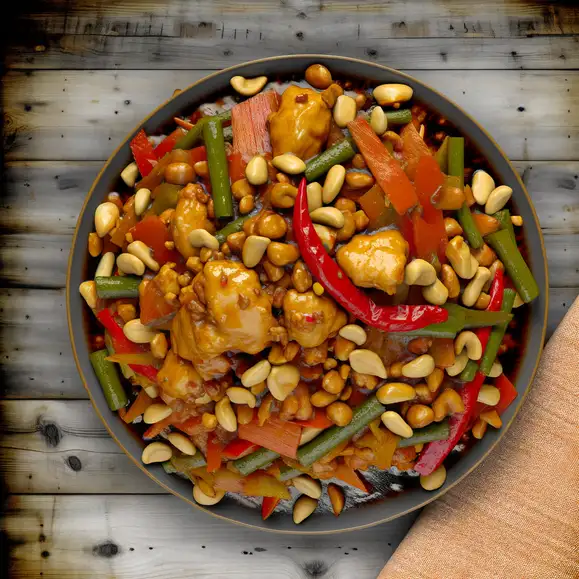
A stir-fried dish made with chicken, peanuts, vegetables, and chili peppers, known for its sweet and spicy flavor profile.
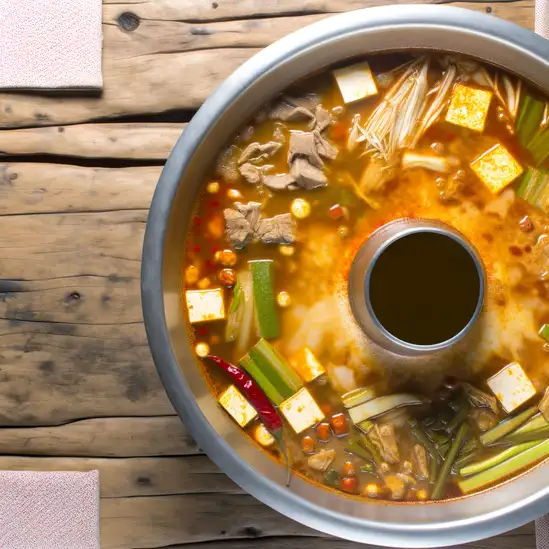
A communal dining experience where diners cook various ingredients like meat, vegetables, and tofu in a simmering pot of spicy broth, often flavored with Sichuan peppercorns.
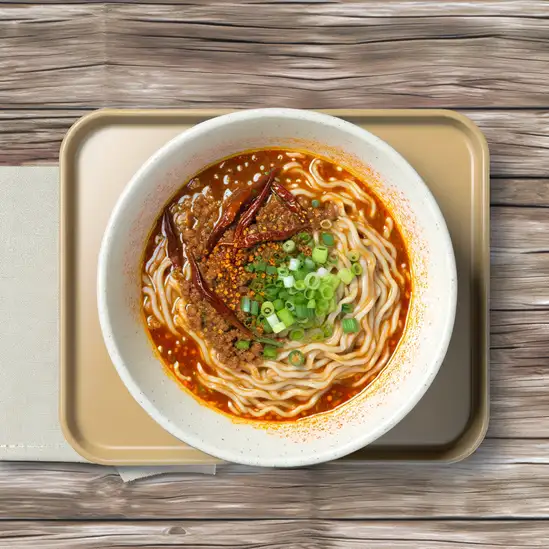
Noodles served with a spicy sauce made from sesame paste, chili oil, and minced pork, often garnished with scallions and pickled vegetables.
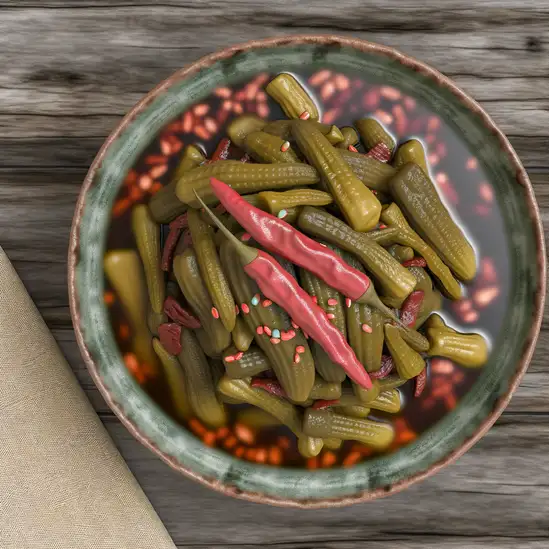
A variety of pickled vegetables that are often served as a side dish, providing a tangy and spicy contrast to the rich flavors of Sichuan dishes.

Pork belly that is first boiled, then sliced and stir-fried with leeks, bell peppers, and a spicy bean paste, resulting in a rich and flavorful dish.

Dumplings filled with a variety of ingredients, often served in a spicy sauce or broth, showcasing the bold flavors of Sichuan cuisine.

Chilled noodles topped with a spicy and tangy sauce made from sesame paste, soy sauce, and chili oil, often garnished with cucumber and peanuts.
Imagine stepping into a city where the past and future dance side by side,and that’s Shanghai for you. The moment you arrive,there’s this electric buzz in the air—neon lights flicker against the twilight sky,while the gentle hum of the Huangpu River carries stories from centuries ago. Walking along the Bund,you can almost taste the salty breeze mingling with the aroma of street food stalls sizzling with dumplings and scallion pancakes. It’s a city that never quite sleeps,yet somehow feels intimate and alive all at once.
Shanghai’s character is a fascinating blend of old-world charm and cutting-edge modernity. You’ll find yourself wandering through narrow alleys in the French Concession,where leafy trees shade quaint cafes and art galleries,then suddenly be swept up by the futuristic skyline of Pudong,with its towering skyscrapers piercing the clouds. The city’s rhythm is a mix of traditional tea houses where locals chat over jasmine tea and the pulse of techno beats spilling out of rooftop bars.
What really makes Shanghai unforgettable is how it invites you to slow down and soak in its layers. The chatter of vendors,the clinking of mahjong tiles,the scent of jasmine and roasted chestnuts—all these details create a sensory tapestry that feels both vibrant and comforting. It’s a place where every corner tells a story,and every meal is a celebration. Trust me,once you’ve felt Shanghai’s heartbeat,you’ll want to come back just to listen again.
Imagine stepping into a city where towering skyscrapers meet bustling street markets,and the scent of sizzling street food mingles with the salty breeze from Victoria Harbour. That’s Hong Kong for you—a vibrant pulse of energy that never quite slows down. Walking through its neighborhoods,you’ll hear a symphony of sounds:the chatter of locals bargaining over fresh produce,the clatter of dim sum carts,and the distant hum of ferries gliding across the water. It’s a place where East and West blend seamlessly,creating a unique rhythm that’s both modern and deeply rooted in tradition.
What really grabs you about Hong Kong is its character—bold,unapologetic,and endlessly curious. One moment you’re wandering through neon-lit streets in Mong Kok,alive with the buzz of night markets and arcade games,and the next,you’re finding calm in the lush greenery of Victoria Peak or the quiet temples tucked away in the city’s corners. The city’s food scene alone is a journey:from steaming bowls of wonton noodles to delicate egg tarts fresh from the oven,every bite tells a story.
Hong Kong feels like a city that’s always inviting you to explore a little deeper,to taste a little more,and to soak in its vibrant culture. It’s a place where every street corner has a story,and every sunset over the harbor feels like a personal gift. Trust me,once you’re there,you’ll understand why it’s impossible not to fall a little in love with this dynamic city.
Imagine stepping into a place where the ocean breeze carries a hint of salt and tropical flowers,and the sun seems to linger just a little longer on your skin—that’s Sanya. Nestled on the southern tip of Hainan Island,this city feels like a warm embrace from the moment you arrive. The rhythm here is relaxed but alive,with palm trees swaying gently against a backdrop of turquoise waters and soft,sandy beaches that stretch endlessly. It’s the kind of place where mornings start with the chatter of fishermen unloading their catch and the scent of fresh seafood mingling with the salty air.
Walking through Sanya’s bustling markets,you’ll hear the lively calls of vendors selling exotic fruits and spices,while the aroma of grilled satay and tropical fruits like lychee and mango tease your senses. The city’s culture is a vibrant blend of traditional Li and Miao ethnic influences mixed with modern coastal charm,giving it a unique character that’s both authentic and inviting. You can feel the warmth not just from the sun but from the locals,who are genuinely friendly and eager to share their stories.
Whether you’re wandering along the palm-lined streets,diving into crystal-clear waters,or savoring a bowl of freshly caught seafood at a beachside shack,Sanya invites you to slow down and soak in its easygoing spirit. It’s a place that stays with you long after you leave,whispering promises of sunlit days and starry nights.
Imagine stepping into a place where the ocean breeze carries the scent of salty waves mingled with the sweet aroma of blooming frangipani. That’s Xiamen for you—a coastal city that feels like a gentle hug from the sea itself. Walking along the palm-lined streets,you’ll hear the rhythmic chatter of locals and the distant hum of fishing boats returning with the day’s catch. The city pulses with a laid-back energy,a perfect blend of old-world charm and modern vibrancy.
What really makes Xiamen stand out is its unique mix of cultures. The colonial-era architecture on Gulangyu Island,with its pastel-colored mansions and winding lanes,invites you to wander and get lost in stories whispered by the walls. Meanwhile,the bustling markets and street food stalls on the mainland offer a sensory feast—imagine biting into a freshly made oyster omelet,the flavors rich and briny,or sipping on a cup of fragrant jasmine tea while watching the world go by.
Xiamen’s character is warm and welcoming,with a rhythm that encourages you to slow down and savor the moment. Whether you’re cycling along the scenic coastline,exploring quaint temples tucked away in quiet corners,or simply sitting by the water as the sun dips below the horizon,there’s a peacefulness here that stays with you long after you leave. It’s a city that invites you to breathe deeply,taste boldly,and feel truly alive.
Imagine a place where the sea breeze carries the scent of salt and blooming jasmine,and the skyline shimmers with a mix of modern glass towers and cozy seaside neighborhoods—that’s Zhuhai. This city has a laid-back charm that instantly puts you at ease,like a friend who’s both effortlessly cool and warmly welcoming. Walking along the Lover’s Road promenade,you’ll hear the gentle lapping of waves mingling with the distant laughter of families and the occasional call of seagulls,creating a soundtrack that feels both peaceful and alive.
Zhuhai’s character is a beautiful blend of old and new. You can wander through bustling markets where vendors shout out fresh seafood deals,the air thick with the aroma of grilled scallops and spicy street snacks. Then,just a short ride away,you find sleek parks and art installations that invite you to slow down and soak in the city’s creative pulse. The locals here have a relaxed friendliness that makes you feel like you’re part of a community,not just a visitor.
What really sets Zhuhai apart is its rhythm—calm yet vibrant,coastal yet cosmopolitan. Whether you’re sipping a cup of fragrant oolong tea in a quiet teahouse or catching the sunset over the Pearl River Delta,there’s a sense of balance and warmth that stays with you long after you leave. It’s a place that invites you to explore at your own pace and discover the simple joys of life by the sea.
If you ever find yourself craving a place where the sea breeze mingles with the hum of lively streets,Qingdao is where you want to be. This coastal city has a laid-back charm that feels both refreshing and invigorating. Imagine walking along the waterfront,the salty air brushing your face as fishing boats bob gently in the harbor. The sound of seagulls overhead blends with the distant clinking of glasses from cozy seaside cafes. It’s a place where the ocean’s rhythm seeps into everyday life,making even a simple stroll feel like a mini escape.
Qingdao’s character is a fascinating mix of old and new. You’ll spot red-tiled roofs and German colonial architecture standing proudly alongside sleek modern buildings. The city’s history whispers through its streets,especially in areas like Badaguan,where each villa tells a story. But it’s not just about looks—Qingdao pulses with a vibrant culture. The local markets buzz with vendors selling fresh seafood that’s so fresh you can almost taste the ocean in every bite. And speaking of taste,you absolutely have to try the famous Qingdao beer,brewed right here,which pairs perfectly with grilled clams or spicy street snacks.
What really makes Qingdao stick with you is its warmth—the friendly smiles of locals,the casual conversations over tea,and the way the city invites you to slow down and savor the moment. Whether you’re wandering through fragrant pine forests or watching the sunset paint the sky over May Fourth Square,Qingdao feels like a place that welcomes you home,even if just for a little while.
Scammers pose as art students and invite tourists to view their 'exhibition,' pressuring them to buy overpriced art pieces.
Tourists are invited to bars or clubs by locals, only to be presented with an outrageously high bill after ordering drinks or food.
Individuals dressed as monks approach tourists, offering blessings or trinkets, and then demand donations.
Vendors sell counterfeit or low-quality souvenirs, claiming they are authentic or handmade.
Scammers sell counterfeit or invalid tickets to popular attractions, leaving tourists unable to enter the sites.
Tourists are lured into massage parlors with low prices, only to be charged hidden fees or pressured into expensive services.
Some taxi drivers refuse to use the meter and charge tourists inflated fares, especially from airports or tourist hotspots.
Locals dressed in traditional costumes charge tourists for taking photos with them, often demanding more money after the photo is taken.
Crowded tourist areas and public transportation are hotspots for pickpockets targeting unsuspecting tourists.
Tourists are invited by friendly locals to a tea house, where they are served tea and later presented with an exorbitant bill.
China has very strict laws regarding drug use, possession, and trafficking. The penalties for drug-related offenses can be severe, including long prison sentences, heavy fines, and even the death penalty for serious cases. Tourists should avoid any involvement with illegal drugs while in Chengdu or anywhere in China.
In Chengdu, as in the rest of China, smoking is generally allowed in many public places, although there are increasing restrictions. Smoking is prohibited in certain public areas such as schools, hospitals, public transportation, and some restaurants and hotels. Tourists should look for 'No Smoking' signs and be mindful of local regulations to avoid fines.
Vaping is subject to similar regulations as smoking in Chengdu. While it is not as widely regulated as in some Western countries, it is still prohibited in non-smoking areas such as schools, hospitals, and public transportation. Tourists should be cautious and follow the same guidelines as for smoking.
What are other people saying about Chengdu?
Recent Social posts about Chengdu
There is nothing to show you for now.